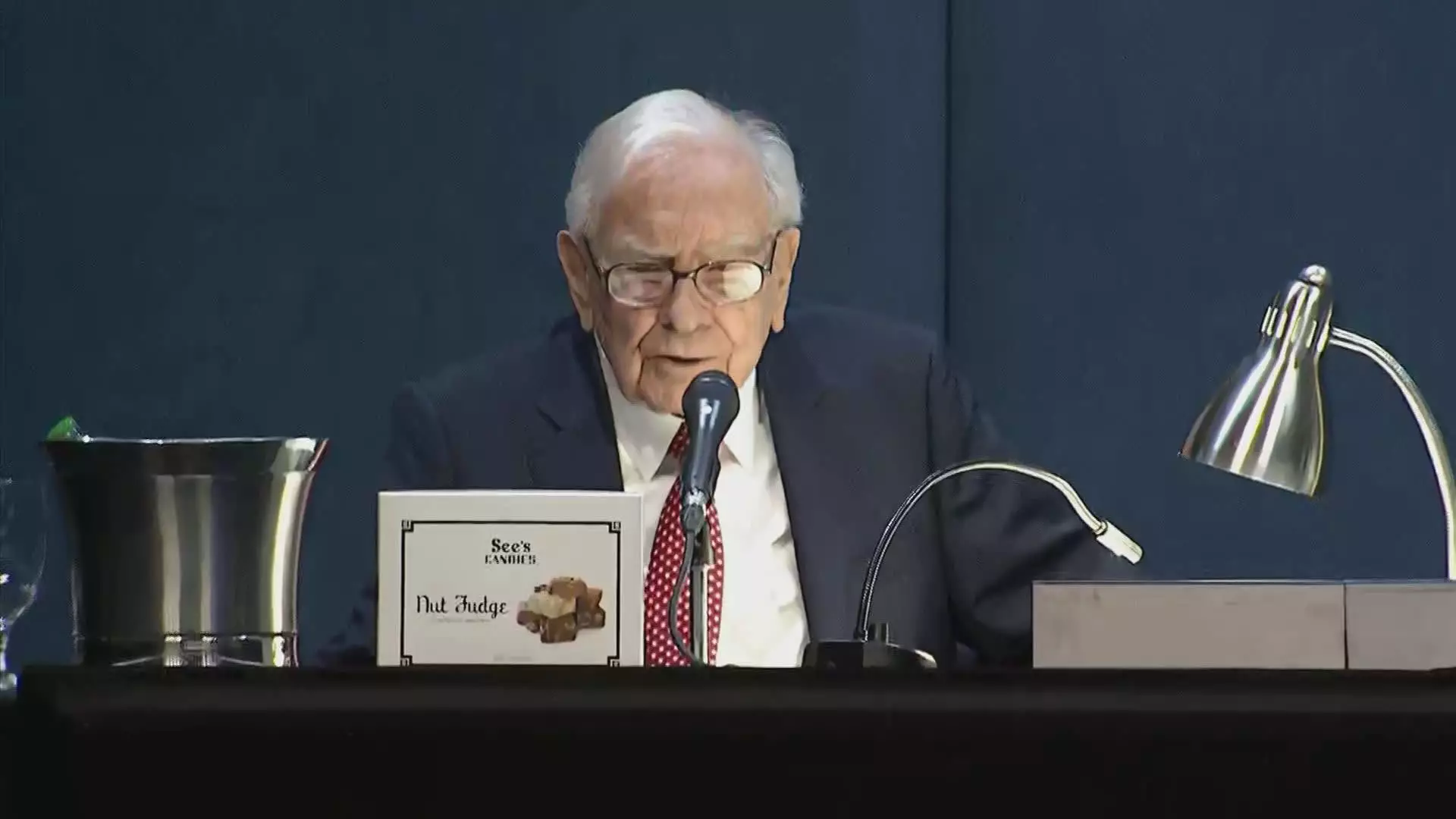Warren Buffett’s Berkshire Hathaway has recently emerged as an unusual stronghold in the stormy seas of the U.S. stock market. Contrary to the steep downturns seen in the S&P 500—where a staggering 9.1% drop caused panic among investors—Berkshire’s Class B shares experienced a relatively modest decline of only 6.2%. While this performance might seem commendable, it prompts a deeper inquiry: is this resilience truly a testament to Buffett’s acumen, or merely a reflection of the chaos cultivated by an erratic political climate?
In the face of President Donald Trump’s aggressive tariff policies that reverberated through Wall Street, investors have flocked to the cash-rich conglomerate as a safe haven. The notion that an economic heavyweight like Berkshire Hathaway can absorb shocks while the broader market flails raises questions about the health of the market at large and the sustainability of this refuge. Is Berkshire’s performance indicative of true stability or a temporary reprieve amid widespread uncertainty?
The 200-Day Moving Average and Its Significance
One of the markers of financial health is the 200-day moving average, and it’s noteworthy that Berkshire Hathaway stands alone among the ten largest companies in the S&P 500 in maintaining its position above this benchmark. According to Rich Ross, the head of technical analysis at Evercore ISI, while the 200-day moving average isn’t foolproof, it certainly offers insights into market momentum. The troubling reality, however, is that such metrics only tell part of the story.
Buffett’s empire possesses a portfolio that’s perceived as relatively insulated from the broader economic upheavals triggered by political recklessness. Unlike other corporations that may be at the mercy of tariffs or global trade relations, Berkshire seems to ride the currents of the American economy more naturally. Yet, one must consider: is this dominance a source of confidence or a mere illusion of control in a tumultuous age of uncertainty?
Implications of Trump’s Tariffs on Market Sentiment
The current political landscape, especially under Trump’s presidency, creates a precarious environment for investors. The ambiguity and unpredictability of state policies cast a shadow on market forecasts. We see companies scrambling, investors panicking, and the Dow experiencing unprecedented losses of over 1,500 points in consecutive days. This disarray raises alarming questions: how deeply entwined is the American economy with the whims of a single leadership?
Buffett himself remains a pivotal figure in these discussions, with insights that echo the sentiment of cautious optimism. Josh Brown, CEO of Ritholtz Wealth Management, emphasizes that Berkshire is an exception—an entity that doesn’t rely on the whims of presidential decisions for its survival. In this sense, Buffett’s firm serves as an emblem of what a financially sound, well-diversified business should strive to be. Yet the irony remains: is it prudent to look to companies like Berkshire as examples of success when they exist against a backdrop of chaos?
Berkshire’s Defensiveness: A Double-Edged Sword
Berkshire Hathaway’s defensive approaches, including its vast insurance empire and robust balance sheet boasting $334 billion in cash reserves, both allure and confuse investors. The defensive positioning might offer immediate safety, but one cannot ignore the potential stagnation that comes with such conservatism in a thriving economy. Will the dalliance with safety stifle progress and innovation within this behemoth?
Moreover, the charm of cash reserves might lure investors into a false sense of security. As financial markets continue to struggle, will Berkshire’s traditional values position it for sustainability, or will they render it obsolete in a world that is continuously moving towards more agile models?
Buffett’s Response to Social Media Misrepresentation
Finally, the latest social media tempest involving President Trump and a misattributed remark by Buffett sheds light on the fragility of public opinion. The notion that Trump may deliberately manipulate market forces has implications far beyond stock prices; it strikes at the very foundation of investor confidence. As Buffett publicly denied any association with controversial claims, one wonders how much of a toll such misinterpretations take on companies in an era defined by sound bites over substantial dialogue.
Amid these challenges, Buffett’s measured responses might prove to be a stabilizing influence. However, the overarching question remains: how can one remain anchored in wisdom when the tides of change often feel capricious and uncontrolled? In a turbulent political climate, Berkshire Hathaway stands as a unique case study—a company embodying both resilience and the grave universe of uncertainty that can make or break it.


Leave a Reply